How Cycling Grew in Popularity thanks to Covid-19

COVID-19 gave people unique opportunity to take up cycling
I ride my bike competitively, and for the most part, I am riding my bike on the roads for my training. I have been road riding for a while now, and while you would think that makes me used to the cars I share the road with, there are still moments when you get concerned for your safety and feel you have to exert extra awareness to feel safe in what is legally a shared space.
Due to COVID-19, we experienced two changes;
- A significant decrease in the number of cars on the road due to many working from home,
- An increase in the number of people riding bikes either for fitness or family time and enjoyment.
These changes have had several impacts and have provided us with a unique opportunity to make changes that would otherwise be nearly impossible to replicate under more normal circumstances.
The impact of COVID-19 on daily life: What changed?
As we have all been encouraged to work and study from home and minimise trips for only essential purposes, there was less requirement to get out of the house and drive anywhere or use public transport. Coupled with the fact that gyms, pools, boot camps and many recreational areas previously used for exercise were shut, people began to look for alternative ways to hit their daily 30 minutes.
When restrictions came into place public transport in Sydney dropped by a significant 75% in March 2020 alone, with up to 51 million fewer trips taken just on Sydney rail (Rabe & Singhal, 2020), this decrease has been met with an increase in bike sales and participation of bike riding.
A recent bike count conducted by Bicycle Network in late April found that the number of riders on many off-road paths were up by several hundred (Clark, B, 2020) while also finding an increase of 270% on bike paths in major cities since the pandemic started (Visontay, E, 2020).
A bike shop, 99 Bikes Brookvale, in Sydney’s North West stated an increase of bike sales by 28% for April compared to the December prior, which would typically be the busiest month in the lead-up to Christmas (Clark, B, 2020).
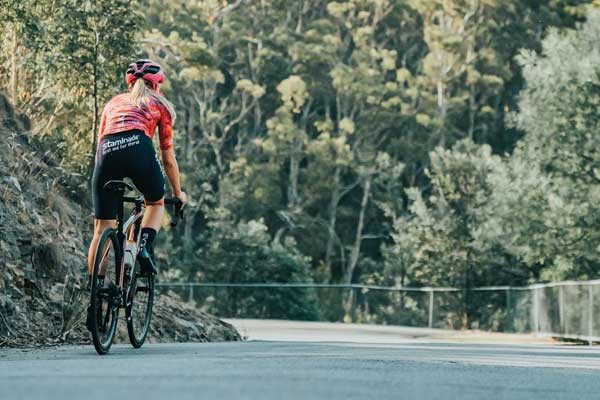
This change isn’t isolated to Australia either, the Association of Cycle Traders in Britain has up to 20,000 bikes awaiting manufacturing and delivery and the sale of these bikes had already been made or reserved (Clarke, 2020) as of 18th May.
Many retailers believe that the change has been a huge positive, allowing people to get outdoors more, and decrease time spent sitting in vehicles, while still encouraging social distancing during this time.
It hasn't been uncommon for a family to come into a bike shop and walk out with a bike for mum, dad and the kids with the entry-level bike prices ranging from $700-$1,200 seeing the most significant increase in sales.
BikeNOW in South Melbourne typically sells bikes around $4,000-$15,000, considered a higher-end market but the recent changes have seen a shift to selling 40-50 entry-level bikes over a weekend alone (Landis-Hanley, J 2020).
COVID-19 has had some positive impacts on cycling
1. Increased jobs in the cycling industry
Many bike shops initially feared that with the COVID-19 changed this would see a downturn in sales, revenue, and work hours, but it has been the exact opposite. Manager of Giant Sydney Grant Kaplan explained to the Guardian (2020) that “the phone doesn’t stop ringing,” and his staff have had to increase work hours and put a hold on jobs like servicing bikes as building bikes for new purchases becomes the priority. This increase in demand has only seen an increase in jobs available in the servicing and retail industry for bikes.
There has also been a push for the improved infrastructure of bike paths and cycleways, which in turn will create jobs in the council and related roles to implement the changes.
2. Improvements to the environment
The environmental improvements observed during the COVID-19 pandemic cannot just be credited to a reduced number of vehicles on the road and more cyclists, but they are a contributing factor. Reduced traffic congestion, air travel and emissions from factories forced to close have seen air quality improvements across the globe.
The World Health Organization (WHO) measured air quality in Asia and the UK and found that air pollution had reduced by up to 60% in March compared to the same time in 2019 (Monks, P 2020). With it estimated by WHO that up to 4 million deaths worldwide are caused by poor air quality (Science Media Centre, 2020), it will be difficult to ignore the improvements seen from these recent changes.
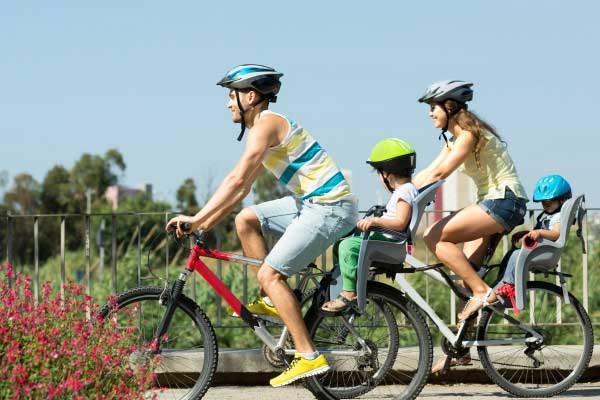
3. The cost to the economy
Bicycle Network is a large corporation with over 45,000 members who are leading the push to take advantage of the increased uptake of cyclists hitting the paths. One of the key elements of the Bicycle Networks vision is a daily cash incentive of $5 to be paid by the Federal Government awarded to commuters who ride to work and leave their cars at home (Visontay E, 2020).
Craig Richards, chief executive of Bicycle Network believes that in the long run, this would save the public money across long-term maintenance and even health outcomes. Richard believes that every time a person commutes to work by vehicle, it costs society $10, so in turn, every person that commutes to work by bike saves $10, this is considering when you add up the costs of infrastructure, fuel, environmental impacts, congestion on roads etc. (Visontay E, 2020).
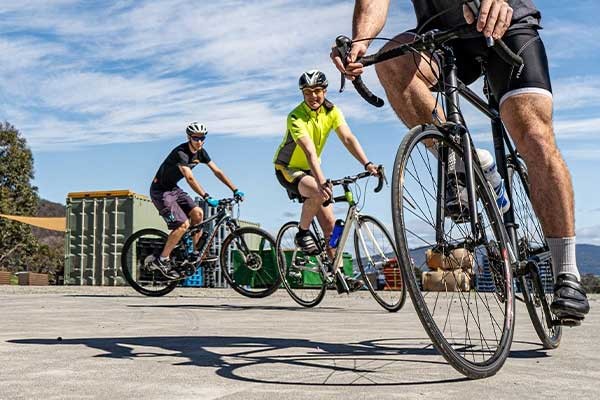
4. The personal benefits
The benefits of jumping on a bike are many! Aside from the initial outlay of a bike, you will likely see yourself using your car less, decreasing your expenses on fuel and potentially a decrease in things like insurance for using your vehicle less.
The health benefits are huge, with cycling supporting improvements in cardiovascular fitness, low impact and assistance with improved joint mobility, sport helping to decrease stress levels, improved muscle strength, posture and coordination (Better Health, 2013).
The additional benefit during COVID times is that participants have been able to cycle together while still maintaining social distancing rules due to the nature of riding a bike, making it easy to enjoy for family and friends alike.
5. Companies getting involved
I’ve already mentioned Bicycle Network being a big driver in embracing the changes and encouraging the momentum. Trek Bikes has also recently released a campaign #GoByBike which encourages riders to change one commute per week that would normally be in the car to be by bike (Trek, 2020). Focusing largely on the environmental impact of commuting by vehicle vs bike Trek pushes that ‘Our World, is our responsibility to opt for the bike over a vehicle.
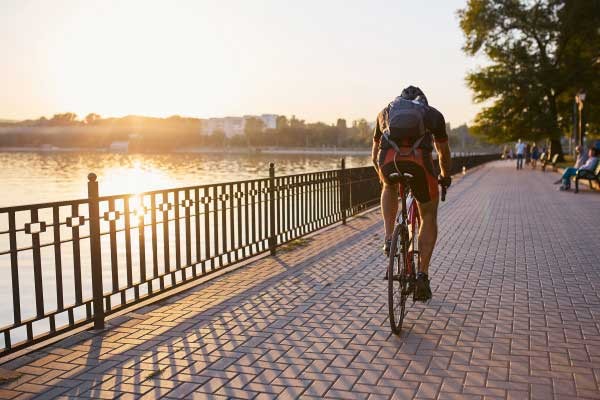
What’s next?
The pandemic isn’t over, so it’s unlikely we will see people hanging up their bikes just yet, but as the end draws near Bicycle Network and other organizations want to embrace the change and continue to encourage cyclists to use their bikes over cars into the future.
With up to 6 people in every 10 interested in riding their bikes, but being too concerned about heavy traffic, Craig Richards believes that the pandemic is the perfect time to improve bike paths to enhance commuting opportunities. Part of Bicycle Networks' plans is endorsing the construction of up to 750km of new bike lanes across Melbourne and Sydney (Visontay E, 2020) to help get this underway.
Let’s all jump on our bikes more often
I already ride my bike almost daily, but for the most part, I do this separate from my daily work commute. It would be worth, even for myself, to take on board some of these facts and figures and make some changes to how I commute to work, opting for the bike instead.
I know some of the factors that can hold me back here in Tasmania can be the cold over winter, not wanting to get to work sweaty from riding or simply running late. All of these reasons are mostly excuses that are very easy to overcome if planned for ahead of time.
So, taking this onboard I rode my bike to work this morning, and hopefully, I can start to add this change in more permanently, along with the yoga and other good habits I felt I have applied over this period.

Formerly working as part of Bulk Nutrients R&D team for many years, Nicole Frain is a food scientist, personal trainer and a professional international cyclist.
She's applied her learnings at the national stage for bodybuilding, and has several qualifications in Food Science, Nutrition and Business!
More about Nicole FrainReferences:
- Better Health Channel Vic (2013), ‘Cycling-Health Benefits,’ Victoria State Government, viewed on 28th May 2020 from; https://www.betterhealth.vic.gov.au/health/healthyliving/cycling-health-benefits
- Clark, B, 2020, ‘Australians join global corona viris cycling boom as bikes become key social distancing tool,’ SBS News, viewed on 28th May 2020, from; https://www.sbs.com.au/news/australians-join-global-coronavirus-cycling-boom-as-bikes-become-key-social-distancing-tool
- Rabe, T & Singhal, P, 2020, “the 51 million times Sydneysiders didn’t tap on in March,’ The Sydney Morning Herald, viewed on 28th May 2020 from; https://www.smh.com.au/national/nsw/the-51-million-times-sydneysiders-didn-t-tap-on-in-march-20200408-p54i4z.html
- Monks, P, 2020, ‘Coronavirus: lockdown’s effect on air pollution provides rare glimpse of low-carbon future,’ The Conversation, viewed on 28th May 2020 from; https://theconversation.com/coronavirus-lockdowns-effect-on-air-pollution-provides-rare-glimpse-of-low-carbon-future-134685
- Science Media Centre, 2020, ‘Expert reaction to drop in air pollution because of COVID-19,’ Science Media Centre, viewed on; 28th May 2020 from; https://www.sciencemediacentre.org/expert-reaction-to-drop-in-air-pollution-because-of-covid-19/
- Trek, (2020), ‘#GoByBike,’ Trek Bikes viewed on 28th May 2020 from; https://www.trekbikes.com/us/en_US/gobybike/
- Visontay, E, 2020, Call to fast-track bike lanes to boost jobs and take advantage of lockdown induced bicycle sales,’ The Guardian, viewed on 298th May 2020 from; https://www.theguardian.com/world/2020/may/26/call-to-fast-track-bike-lanes-to-boost-jobs-and-take-advantage-of-lockdown-induced-bicycle-sales
Related Blogs

How to Maintain Your Bulk/Muscle Growth or Continue It During Lockdown
Posted by Dayne Hudson
Estimated reading time: 5 minutes
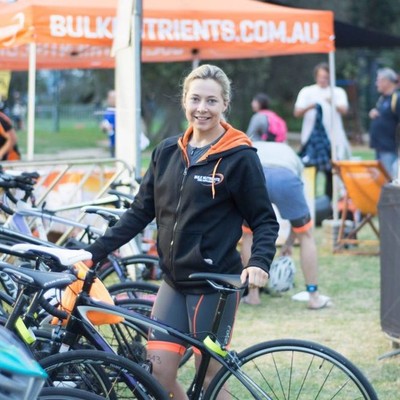
Nicole Frain: Fueling for Endurance Sport With a Plant Based Diet
Posted by Bulk Nutrients
Estimated reading time: 8 minutes
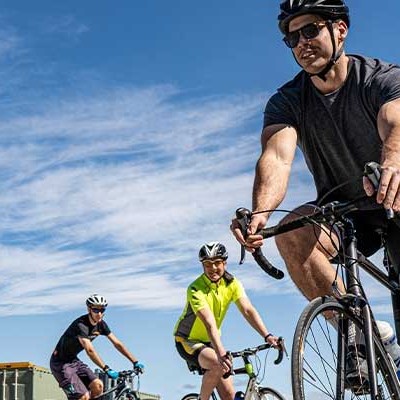
Cycling: The Lifetime Exercise for Everyone
Posted by Ben Crowley
Estimated reading time: 10 minutes




























